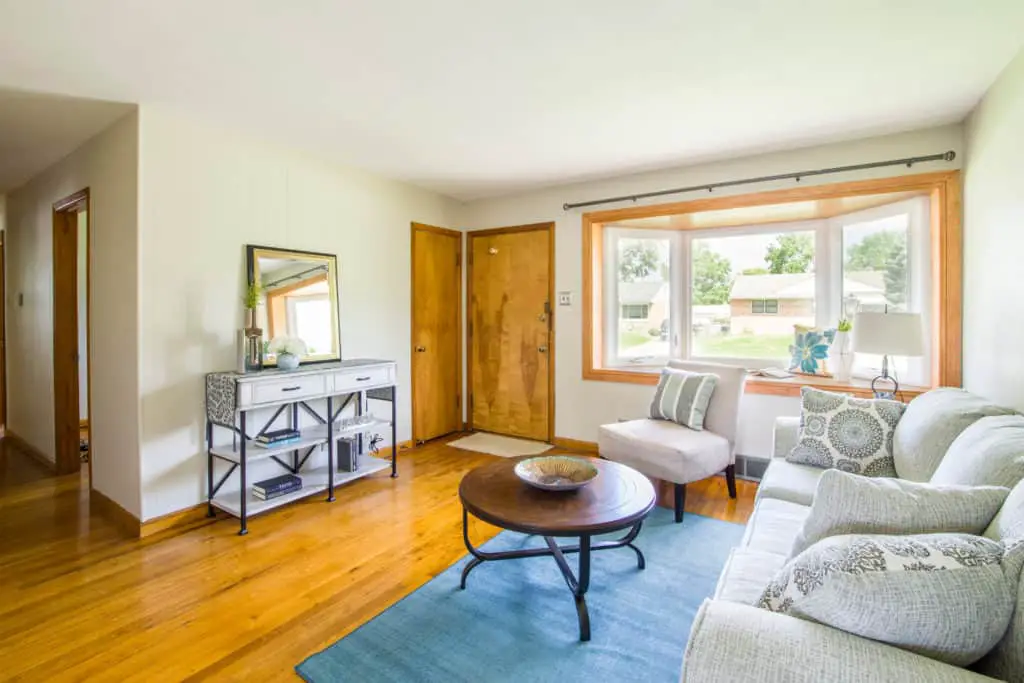
So you want to have your boyfriend or girlfriend over at your apartment? Are you just having them for the night or for a week or for a month? What your lease says about their Guest Policy is just one of many factors that will determine whether or not you may run into problems with your landlord or not.
The Conundrum of Guests
When you have a home, even if that home is an apartment, you are more than likely going to want your friends and family to come and visit, maybe even stay with you for a bit. This seems like a no-brainer and not something you would have to ask permission for like a 15-year-old. However, the issue of Guests is a lot more complicated in a renting situation than just having someone stay with you for a while.
First off, the owner of the complex has legal and liability issues that he must cover for the sake of the apartment complex. If there are unknown guests staying at their facility and something unfortunate happens, the cost of everyone’s apartment will go up dramatically, the owner will have to pay a much higher insurance rate.
Not only that, but the apartment owner themselves could also be legally liable for what your unlisted guest does on the property.
Next, how are your potential guests impacting other guests? Do you have a boyfriend or girlfriend who comes over for the night, leaves the next morning, and doesn’t cause any commotion or drama? Or are they noisy and taking other tenant’s parking spaces down in the lot?
The difference between these two types of guests can make a big difference in whether or not you run into trouble with the manager.
Landlord Problems of Guests
Managers also end up running into the problem of how to deal with problem guests if they aren’t on the lease. If they need to evict someone and they aren’t on the lease, how do they handle it? If they cause trouble, what sort of liability are they facing?
It seems simple to just “call the police” if there are problems, having the cops show up all the time at a complex isn’t something the manager, the owner, or the other tenants want to see.
Additionally, are they given security access? A key card or security code that only other tenants have? How many guests are staying in the apartment and for how long? Are there mattresses in the living room, or is the friend just staying a few nights in the spare bedroom?
The easiest way to have clarity on this situation is to have the Guest Policy clearly written out in the lease agreement so both management and the tenant have a clear understanding of what is expected concerning Guests.
What Defines a Guest?
A guest can mean different things to different people. It can be all the below examples:
A girlfriend or boyfriend spending most days and nights there. This is a bit different than the girlfriend or boyfriend simply visiting during the day and limiting the overnights.
If they are spending a significant amount of time in your apartment, there is a good chance that other tenants are going to say something to the manager, and you will subsequently get an increase in your monthly rate.
If you want your significant other to spend more time with you, simply ask them if they are willing to be put on your lease agreement so you don’t receive negative financial consequences because of it. More than likely, your manager will appreciate your honesty, you can let other potentially nosy tenants know that they are on the lease, and chances are you won’t receive a rate increase.
Your buddy is trying to “Get back on their feet.”
This is one of the hardest situations for your manager to deal with and is also one of the most common excuses/reasons they are given. Trust us, you are not the only person in history to give this “Guest” the label of buddy trying to get back on their feet.
The problem with this approach is that you have simply avoided answering your manager when asked who the additional person is living in your apartment. Instead of giving him a straight response, you gave him a non-answer coupled with something designed to elicit sympathy for the other person.
Managers quickly get tired of this, they see it all the time, and are MUCH less likely to give you leeway on this than you otherwise would get. Honestly, the VAST majority of the time, their situation financially, unfortunately, isn’t going to change simply because he is sleeping under your roof as opposed to where he was sleeping previously. The BEST thing you can do in this situation is to AVOID IT COMPLETELY.
Family on an extended vacation
Some parents or siblings will try to talk a loved one of just “staying with them for a while to save some money.” Often, this time period ends up being about three months due to siblings being on summer break between school sessions, or parents coming back to see their kids during the winter or summer and not having a house to go back to.
However, many times both parties will extend that time period if nobody has said anything at that point.
While it is extremely hard to say “No” to a family member, not doing so may put your lease in jeopardy. Generally, if someone is staying more than 14 nights in a 6-month period, they MUST be on the lease agreement. Failure to do so can result in unexpected price increases.
Apartment complexes are in the business of making money, and this means keeping their apartments full and tenants happy. More than likely, they are going to be OK with them coming down for whatever time period you like as long as it doesn’t violate safety or health mandates, you notify management, and offer to sign or pay for whatever increases there may be.
Retired Parents
Not everyone has enough money when they stop working to afford their own place. It is a very common phenomenon that elderly parents move in with their kids or vice versa. By doing this, not only is it generally a money saver for both parties, but the younger family member is there to help out with their parents as they age.
Of course, apartment complexes are going to allow this IF you take the appropriate measures to make sure it isn’t a problem beforehand. This means informing them of the situation, signing and paying for any necessary changes in the lease agreement, or potentially moving to a different, slightly larger apartment in the same complex.
Any of these solutions can avoid an unfortunate end of your lease, a contentious confrontation by your manager, and an unforeseen increase in your rental cost.

Sub-letters and Airbnb.
Different apartment complexes will have different rules regarding this, but in general, expect your manager or landlord to greatly restrict this type of subletting unless specifically allowing so in your lease.
It may be tempting to offset the cost of your apartment by subletting to a friend, or by advertising a room to sleep in for travelers, but this is going to cause major issues with your fellow tenants, and your landlord will not be happy that these people are not on the lease if they are paying money to stay there.
Terms in the Lease Agreement regarding guests.
So you know what the complex’s policy is on guests, you should look for a few different things in the lease agreement when you sign it, and ask the manager for any additional questions that aren’t specifically addressed in the lease you think may arise during your time there.
If the lease does not have a specific “Guest Policy” that doesn’t mean that they still don’t have rules and regulations regarding this. If you can’t find anything in the lease that clears up your question……call the manager or ask when you are in signing the lease. They will be able to quickly clear up any uncertainty you have regarding the policy.
Eviction notices.
Many states allow the landlord to issue eviction notices if their guest policy is violated. Nobody likes confrontation, so the best thing to do is stay inside the guidelines for the place you are renting.
Factors in considering who is a guest and who is a tenant
- How long can someone stay before needing to be on a lease?
- Can I rent out the unit to someone else while I am here?
- Can guests have access to public areas such as swimming pools, recreation sheds, or cooking facilities?
- Can the guest have access to a key or key card?
- Can the guest receive mail at my address?
Landlords can raise the rent on you
If you present the landlord with a persistent issue with the guests that are staying at your apartment, you may be asking for a rate increase. Most leases will have a provision in it that the complex is able to raise the rate on your unit if you are violating the terms of your lease.
This brings us to the last point about guests……
Don’t give your landlord a reason to raise your rates.
If your guests are as well behaved as you are, and don’t cause any noise violations, chances are that you are going to have minimal problems with your manager. If you give your neighbors something to complain about, they will.
More than likely you know what type of neighbors you have, if they are of the nosy type, you will probably have an issue even if it is just a well-behaved girlfriend or boyfriend who comes over. Simply letting your manager know of these simple things can head these small issues off at the pass and give you leeway for anything else that has come up with your unit.
Remember, there ARE rules for guests at apartment complexes. Being a good host and a good neighbor is going to alleviate many of the potential problems that you will face. But hiding a Guest and trying to skirt the rules laid out in your lease is an easy way to end up spending more money with your apartment.
